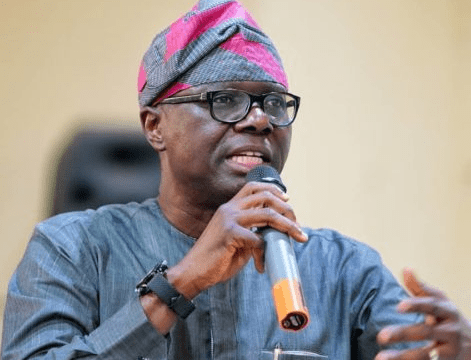LASAM, a non-governmental body comprising stakeholders in Evidence, Advocacy and Knowledge Management and Accountability Sub-Committees, said the State’s 2018 Health budget adhered poorly to release of funds for maternal and child healthcare. The body which set up the indicators to hold the government to higher standards in budget releases urged the Ministry of Economic Planning and Budget of the Governor Sanwo-Olu administration to ensure strict adherence to the annual budget calendar by commencing in July and ending in December.
Recommendations from the budget scorecard tasked the State Ministry of Finance to ensure that over 70 percent of budgeted funds are released on time even as they insisted the State Ministry of Economic Planning and Budget should publish the draft budget online to enhance public access in budget planning processes. Further, LASAM urged that the State Ministry of Health should ensure that funds are released annually for the production of health accounts to develop and keep track of budget releases based on annual work plans developed. Presenting the Health Budget Scorecard, Chairman of the Evidence Sub-Committee, LASAM, Mr. Basit Baruwa noted that the development was contrary to the global standards of which the Lagos State was known.
“In the last four years, the state poorly adhered to the timely release of its budget for health in 2017 and 2018 respectively, to the parastatal and departments thus leading to poor performance in key areas of the sector. “Evidence available to the sub-committee as at May 2018, showed that the enacted budget was not publicly available hence, the good health promised Lagosians could obviously not readily be accessed”. The scorecard revealed that between January and June 2018, Lagos State experienced considerable stock out of essential life-saving commodities in about 50 percent of its Primary Healthcare facilities, with only 10 PHCs experiencing continued stock-out after the intervention.
In the views of the Head of Monitoring and Evaluation Unit, Primary Healthcare Board, Mrs. Folarin Williams, the stock out of life saving commodities in many of the Primary Healthcare centres was evident in the first half of 2018 essentially due to paucity of funds to procure the commodities especially in the first three months of the year. “But immediately there was some release of intervention fund, there was procurement made of essential life-saving commodities from the central stores, hence we saw a large number of commodities available through the rest of the year”, Williams explained.
The indicators for the performance of the State’s health scorecard in the maternal, newborn and child health was a mixed bag of poor progress (below 50 percent), some progress (between 50 percent -74 percent) and good progress (75 percent -100 percent). There was a slight increase in the number of pregnant women who reported for antenatal care in the first 20weeks from 44 percent between January to June to 45 percent between July to December 2018.
However, the number of fully immunized children between January to June of 2018 was 35 percent and this slightly increased to 37 percent between July and December 2018. From the scorecard, the percentage of Nigerian women resident in Lagos between ages 15 to 49years using any method of modern contraception remained low; with a slight increase from 2 percent in June to 5 percent by December 2018.
Source: Vanguard

 One of the expectations of Lagosians from the Lagos State Governor, Babajide Sanwo-Olu, is the enhancement of Maternal, Newborn and Child, MNCH, health in line with his campaign promise to prioritise maternal healthcare under his administration’s five-point Project “THEME” (Traffic, Health, Education, Making Lagos 21st Century Compliant and Entertainment) agenda.
One of the expectations of Lagosians from the Lagos State Governor, Babajide Sanwo-Olu, is the enhancement of Maternal, Newborn and Child, MNCH, health in line with his campaign promise to prioritise maternal healthcare under his administration’s five-point Project “THEME” (Traffic, Health, Education, Making Lagos 21st Century Compliant and Entertainment) agenda.




